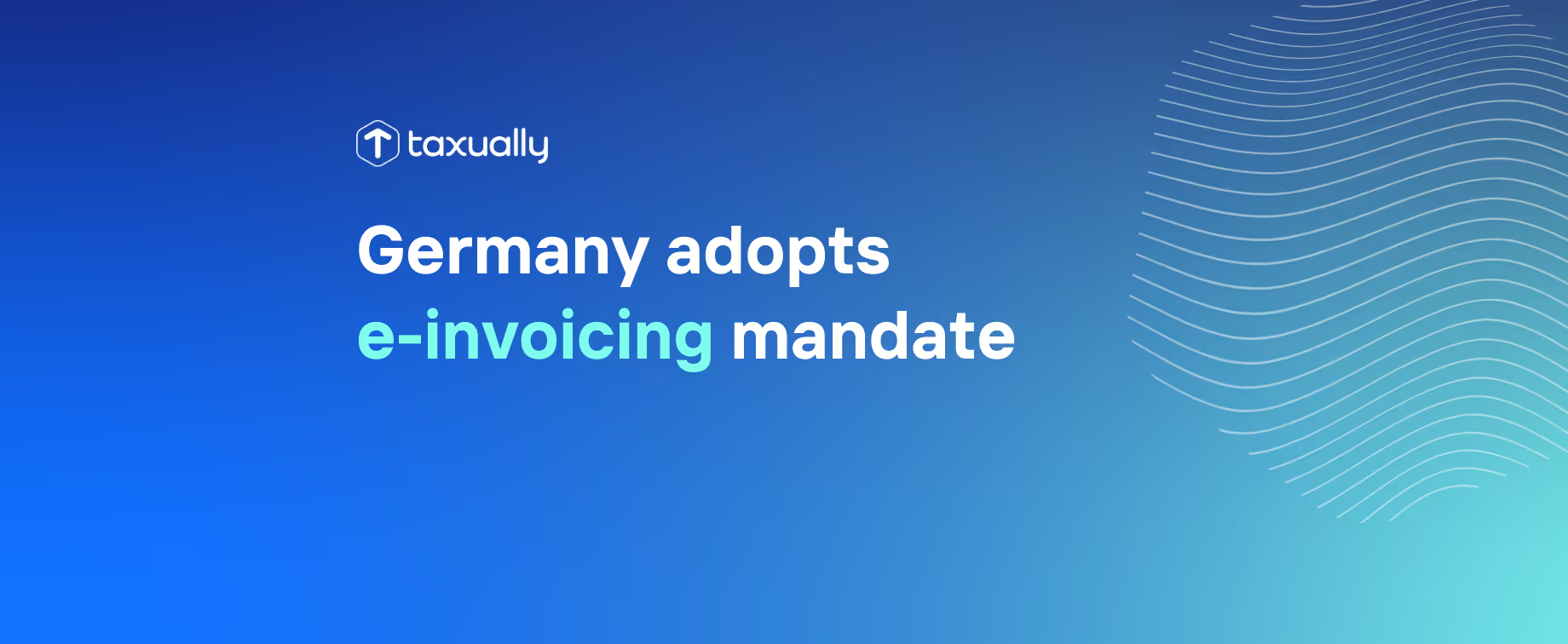Key takeaways
- Mandatory e-invoicing from 2025: Germany will require e-invoices for domestic B2B transactions taxable in Germany starting January 1, 2025.
- Strict format standards: E-invoices must comply with EU Directive 2014/55/EU and CEN standard 19631, ensuring structured, machine-readable formats.
- Phased transition period: Paper and PDF invoices remain acceptable until 2026, with small businesses under €800,000 turnover allowed exemptions until 2027.
In 2023, Germany received EU Council permission to adopt special VAT rules for e-invoices. The "Growth Opportunities Act," detailing these rules, initially moved forward quickly but faced delays after the Bundesrat rejected it in November 2023 due to other disputes. Following mediation and a postponed vote, the Bundesrat approved the legislation, paving the way for phased e-invoicing requirements starting in 2025.
Scope of mandate
Starting January 1, 2025, Germany will mandate e-invoices for domestic B2B transactions taxable in Germany, excluding VAT-exempt sales. This applies to businesses established in Germany. The requirement to issue invoices within six months will remain. The new regulation exempts small-amount and ticket invoices from e-invoicing requirements, lifting prior recipient consent requirements.
E-invoice definition
The definition of e-invoices will narrow significantly, requiring compliance with Directive 2014/55/EU and CEN standard 19631 as per new rules in the German VAT Act. Invoices must meet these standards or have a mutual agreement on the format between issuer and recipient that allows for accurate data extraction or interoperability. This ensures prior investments in e-invoicing, like EDI, remain valid.
Non-compliant invoices (e.g., PDFs) will be classified as "other invoices," and electronic versions not meeting these standards will need recipient consent during transitional phases.
Plans for transition
The mandate comes into force in 2025, but there will be initial leniency for issuers, such as the continued acceptance of paper and consent-based electronic invoices through 2026. In 2027, small businesses with under €800,000 annual turnover can still issue paper or electronic invoices with recipient consent.
EDI invoices also remain viable with consent, provided they align with the CEN standard. While most issuers won't face the full impact until 2027, German businesses must prepare their systems for unrestricted e-invoice reception from 2025.
Frequently asked questions
New Year's Day - 1/1/2024Memorial Day - 5/27/20244th of July - 7/4/2024Labor Day - 9/2/2024Thanksgiving Day - 11/28/2024Day after Thanksgiving - 11/29/2024Christmas Eve - 12/24/2024Christmas Day - 12/25/2024
When does Germany’s e-invoicing requirement begin?
From January 1, 2025, e-invoices will be mandatory for domestic B2B transactions taxable in Germany, excluding VAT-exempt sales.
What formats will qualify as valid e-invoices?
Invoices must comply with EU Directive 2014/55/EU and CEN standard 19631. PDFs or non-structured formats will be considered “other invoices” and require recipient consent during the transition period.
Is there a transition period for businesses?
Yes. Paper and PDF invoices will still be accepted until 2026, while small businesses with turnover under €800,000 can use them until 2027.



















